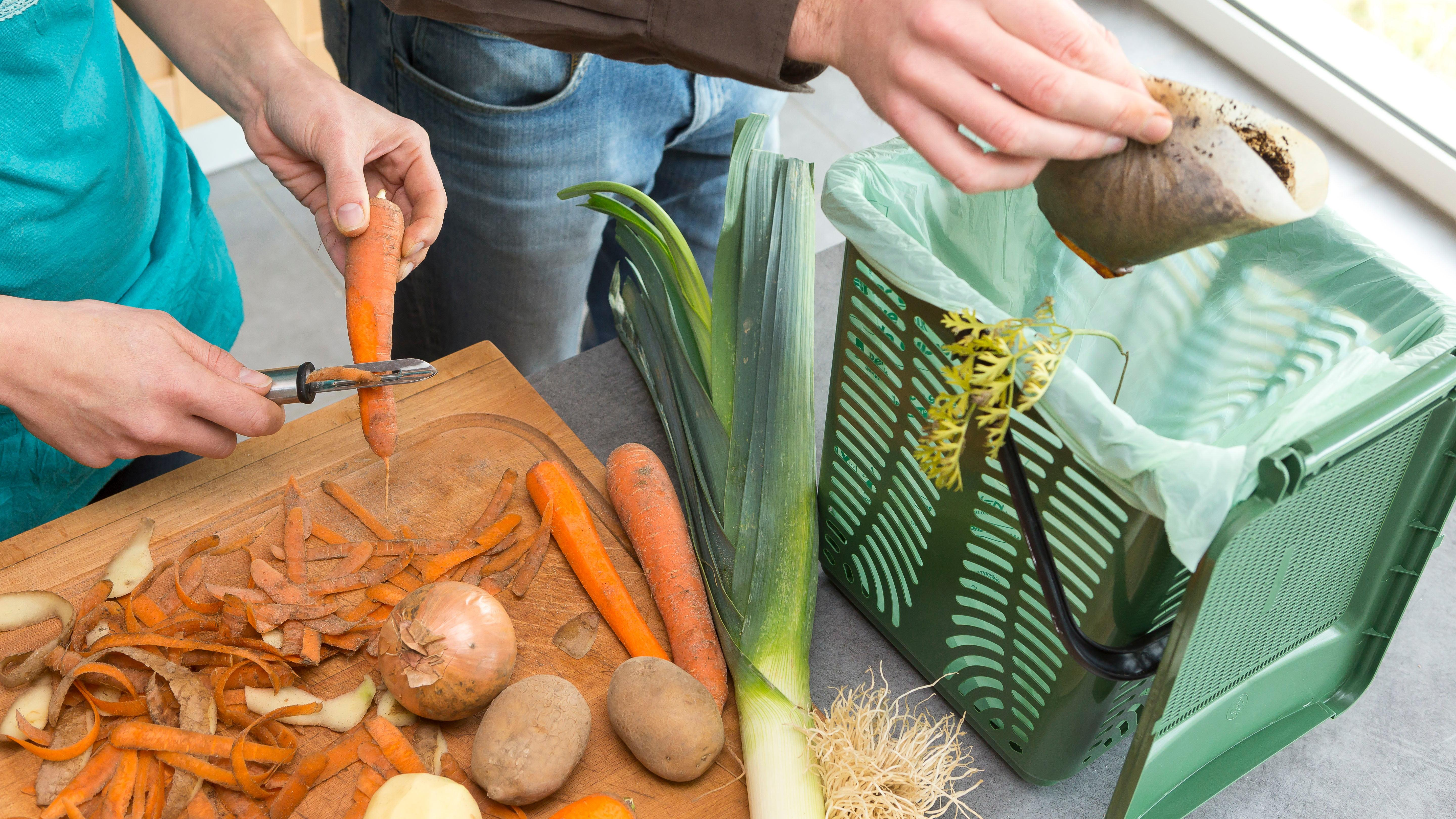Composting Is Easier Than You Might Think
The foods you throw away can easily be turned into eco-friendly, nutrient-rich soil.
We may receive a commission on purchases made from links.
We always applaud any steps taken to combat unnecessary food waste. NPR reports that California is the latest state to get a standing ovation for not just encouraging a better way to discard food scraps but making it a dang law. It's not the first US state to do so (we told you about Vermont making a similar move back in 2020), but as one of the biggest and most populated states in the country, the impact of this legislation has the potential to be huge.
Even if you're not a resident of California or one of the other states where composting is mandatory, it's never too soon to start making composting part of your kitchen routine.
Why compost?
The goal with the California law is to reduce the amount of food scraps and yard waste that ends up in landfills by 75% over the next three years, NPR reports. When compostable items end up in those landfills, they decompose in a similar way to the nonorganic matter, releasing greenhouse gases as they go. When the organic materials are instead siloed into a compost pile, the decomposition process releases less methane and puts carbon back into the soil, creating a nutrient-rich base for planting.
There are more immediate benefits as well. Keeping food waste out of your trash bins and in a secured compost vessel will cut down on unwelcome animals rifling through your garbage and rid your home of rotting food smells. Pro tip: If you're not able to store your compost receptacle outside of your home, consider a bin that fits in the freezer to keep odors at bay.
What foods are compostable?
According to the EPA, the ideal compost contains an even ratio of browns (dead leaves, branches, twigs) to greens (grass clippings, vegetable waste, fruit scraps, coffee grounds) plus water to help break everything down.
While the specifics about what's compostable and what's not can vary from region to region, there are some basic guidelines to follow.
Compostable food items:
- Fruits and vegetables
- Eggshells
- Coffee grounds and filters
- Tea bags
- Nut shells
- Dairy products and eggs
- Fats, grease, lard, or oils
- Meat or fish bones and scraps
Non-compostable food items:
If you're still hoping to get rid of your non-compostable food items in an environmentally friendly way, the EPA suggests reaching out to your local composting or recycling coordinator to see if there's a community curbside or drop-off composting program that can collect other organic items.
What’s the best vessel for composting?
Before starting, check to see if your city has a composting program that provides bins or other instructions for the best way to compost in your community. In Chicago, for example, you can sign up Block Bins, which connects you to a shared compost bin akin to your city-sanctioned garbage receptacle.
For smaller living spaces, any kind of reusable containers will do, specifically ones that have a tight lid and can fit in your freezer to prevent odors from seeping out and keep any stray bugs away—there are plenty of small stainless steel versions specifically designed to prevent both. You can use something like bio bags as a liner in those, though if you'd rather avoid the added waste altogether, straight into the bin is just fine. Those containers can be emptied at compost drop-off centers near you, and in some cities, at the local farmer's market.
If you have a yard, there are a number of options for not only composting your waste but easily turning it into soil and fertilizer for your garden. Try out a tumbler to more quickly churn the ingredients or a large bin that can be accessed for new soil as you garden.
If you're not adverse to creepy crawlies, try vermicomposting, in which earthworms aid in the decomposition process and your compost bin turns into its own mini ecosystem. There are plenty of setups designed to specifically support that method.
No matter how you do it, composting is one small step that can make a tangible impact in the years to come.
